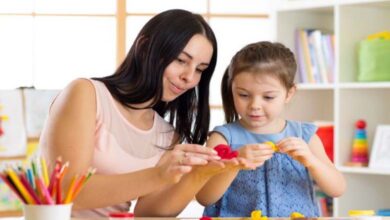How to Deal with Teenagers’ “Mood Swings”

Adolescence is an emotional journey filled with ups and downs. For parents, teens’ reactions can sometimes seem exaggerated, especially since some tend to be dramatic and experience severe mood swings.
However, experts say it is important for parents to take their children’s emotions seriously, as this period is characterized by many emotional and hormonal changes that can lead to internal conflicts, requiring parental help and support.
According to the website Parents, which focuses on parent-child relationships, here are some tips for handling this stage of your child’s life:
-
How Divorce Affects Children Based on Their Age
-
“Concerning” Effects of Electronic Devices on Children’s Mental Health
Active Listening
Avoid stepping in immediately to solve problems. Instead of offering unsolicited advice, try to understand the situation by listening to the details.
Show the teenager that you understand their feelings by saying something like, “Do you mean your teacher was unfair to you because she doesn’t like you?” This type of listening fosters empathy.
-
Three Children Killed: Teen Faces 14 Charges After Horrific Attack
-
UK: Two Children Killed and 11 Seriously Injured in Knife Attack
Validate the Teen’s Emotions
Even if the teen’s problem seems small to you, don’t belittle it. Instead, acknowledge their feelings by saying, “I can see that you’re upset about what happened today.” This can help them express their emotions better.
Stay Calm
If the teen’s reactions are dramatic, try to stay calm and avoid getting involved in heated conflicts. Postpone the discussion until everyone has cooled down.
-
How Having More Than Two Children Affects Your Parenting Style
-
They were heading to school.. 12 children killed in a horrific accident in Johannesburg
Teach Emotional Regulation Skills
Explain that strong emotions don’t justify bad behavior, and help them develop skills to regulate their emotions independently.
Encourage Healthy Social Interaction
If the teen struggles to make friends, they may resort to conflict to gain attention. It’s important to help them learn communication and anger management skills, and encourage them to build healthy friendships.
-
Newspaper: 1,800 US Police Officers Sexually Assaulted Children
-
School or Parents… Who is Responsible for Protecting Children from Social Media?












